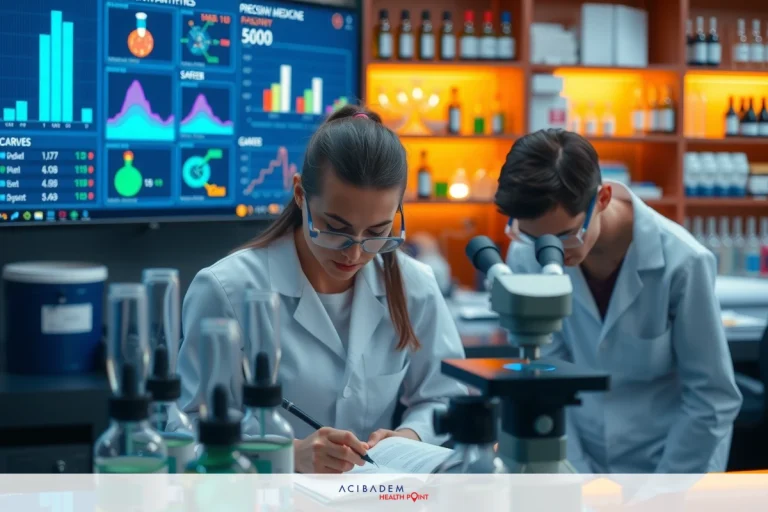What Are Fully Human Monoclonal Antibodies?
What Are Fully Human Monoclonal Antibodies? Imagine a world where we can fight diseases with precision. Fully human monoclonal antibodies make this possible. They offer new hope in medical research.
These antibodies come from human genes. This makes them safer and more effective. No need to worry about immune reactions here.
Doctors use these antibodies for many treatments. They help in cancer therapy and autoimmune diseases too. Their potential is vast changing the way we see medicine today.
What Are Monoclonal Antibodies?
Monoclonal antibodies are special lab-made molecules. They mimic the immune system’s ability to fight harmful pathogens. These human antibodies target specific invaders in the body. The idea is simple yet powerful: create a precise way to combat diseases.
These antibodies come from a single type of immune cell. This makes them uniform and effective. Each monoclonal antibody binds to one specific antigen like a lock and key. This targeted approach helps in many treatments.
Fully human versions are even more advanced. Made entirely from human genes they reduce risks of reactions compared to other types. In medical research this is a huge step forward.
Doctors use these for various conditions including cancer and autoimmune diseases. Antibody therapy with these molecules can be less harsh than traditional methods like chemotherapy or radiation. Their precision means fewer side effects making treatment easier on patients.
How Are Fully Human Monoclonal Antibodies Different?
Fully human monoclonal antibodies stand out because they come from human genes. This unique origin makes them special in antibody therapy. Unlike other types these do not cause strong immune reactions.
Their creation involves advanced genetic engineering techniques. Scientists use these methods to ensure the antibodies are truly “human.” This reduces risks and increases effectiveness. No need to worry about rejection by the body.
These antibodies offer better compatibility with our immune system. Fully human ones blend seamlessly into treatments making them ideal for long-term use. Patients tolerate them well which is a big plus.
In medical research this innovation opens new doors for treatment options. They can target diseases more precisely without causing harm elsewhere in the body. From cancer to autoimmune conditions their potential is vast and promising.
The benefits go beyond just fewer side effects; they include enhanced efficacy too. When used correctly fully human monoclonal antibodies make therapies safer and more effective overall.
Benefits Of Fully Human Monoclonal Antibodies
Fully human monoclonal antibodies have many benefits. They offer better compatibility with our bodies. This means they work well without causing harm. Patients feel more comfortable during treatment.

One major advantage is fewer side effects. Traditional treatments like chemotherapy can be harsh. These antibodies target only the disease leaving healthy cells alone. This makes the therapy gentler on patients.
Another benefit is their high effectiveness in antibody therapy. Fully human versions are designed to match perfectly with human proteins and cells. This precise fit boosts their power in fighting diseases.
In medical research these antibodies show promise for various conditions such as cancer and autoimmune disorders. Their unique properties make them a versatile tool in modern medicine offering hope where other treatments fall short.
Applications In Medical Research
Fully human monoclonal antibodies have opened new doors in medical research. Their precision makes them ideal for various treatments. In cancer treatment they can target and destroy tumor cells with great accuracy.
These antibodies are also useful in treating autoimmune diseases. They help modulate the immune system without causing harm to healthy tissues. This targeted approach reduces symptoms and improves quality of life.
In addition to cancer and autoimmune disorders fully human monoclonal antibodies are explored for other conditions too. For example they show promise in treating infectious diseases by neutralizing harmful pathogens directly.
Researchers continue to study these human antibodies for their potential benefits. Each discovery brings us closer to finding better treatments that are both effective and safe for patients worldwide.
How Are These Antibodies Produced?
The production of fully human monoclonal antibodies is fascinating. It begins with advanced genetic engineering techniques. Scientists use these methods to create the desired human antibodies in the lab.
First they identify specific genes that code for the needed antibody. These genes come from humans making the process very precise. The selected genes get inserted into host cells designed to produce monoclonal antibodies.
Next these host cells grow and multiply in controlled lab conditions. This step ensures a large quantity of fully human monoclonal antibodies can be made efficiently. Lab experts monitor this phase closely to maintain quality.
Once enough cells have grown scientists extract and purify the antibodies from them. This purification process removes any unwanted substances ensuring only pure antibodies remain.
Finally researchers test these purified human antibodies for effectiveness and safety before they’re used in medical research or treatments like antibody therapy. Each step is crucial for creating reliable and potent therapeutic agents.
Frequently Asked Questions
What are fully human monoclonal antibodies?
They are lab-made molecules from human genes used to fight diseases with precision.
How do these antibodies differ from other types?
Fully human ones reduce immune reactions since they come from human genes.
What conditions can be treated with these antibodies?
They are used in treating cancer, autoimmune diseases, and other medical conditions.








